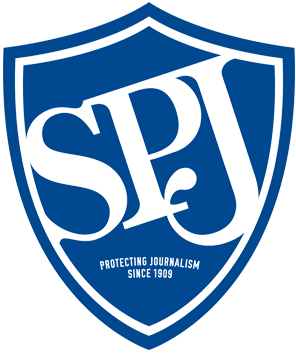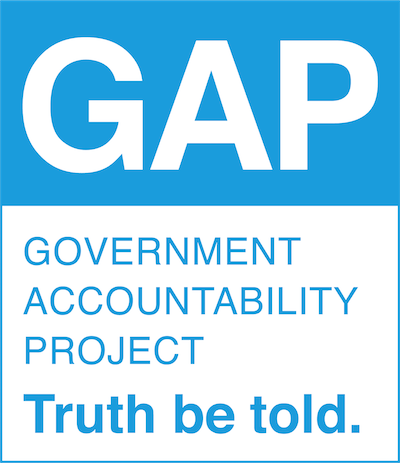The Whistleblower Project


– Introduction
– A Call to Action: Whistleblower Protection Legislation
If passed, these laws would help improve protection for whistleblowers.
Whistleblower Basics
– The Law and Whistleblowing
Deciphering the laws dealing with whistleblowing is complicated, but we hope this will help.
– Whistleblowers and Retaliation
Those who expose wrongdoing can face job loss, lawsuits or even prison.
– Leaking vs. Whistleblowing
Can you spot the difference between a leaker and a whistleblower? It may be trickier than you think.
– Nine Organizations That Work With and Help Whistleblowers
Best Practices for Journalists
– Source Protection and Anonymity for Whistleblowers
In political journalism, there’s a debate over allowing sources to talk to you off the record, in order to keep the access pipeline flowing. Anonymity and the ethics of it can also be complicated in situations beyond scoring political points.
– Whistleblowers and Reporters: Trust
Here are some best practices to follow when working with a whistleblower on a story.
– Technology Can Help Whistleblowers Communicate Anonymously
The ways that reporters and whistleblowers communicate is evolving. The introduction of secure communications has become necessary as journalists try to protect their sources, all the while trying to guarantee the information is secure.
– Anonymity: Not Always the Possible, Nor Always the Best, Strategy
Many whistleblowers want to disclose information about trouble in their workplaces while maintaining their anonymity. However, the vast majority of whistleblowers — more than 95 percent — try to solve their problems internally first.
– When Working with Whistleblowers, Same Ethical Journalism Principles Apply
Government Accountability Project’s “Working with Whistleblowers: A Guide for Journalists” details best practices for working with whistleblowers.
Voices
– Kathryn Foxhall: Good whistleblowing simply needs free speech
During the last 25 years it’s become an accepted norm for government, business, nonprofits and other organizations to prohibit employees to ever communicate with journalists without notifying and being overseen by the authorities, often public information officers. The restrictions are intense, highly effective censorship. The Society of Professional Journalists has made opposing them a priority.
– Jesselyn Radack: Challenges in Defending National Security Whistleblowers
War crimes, mass surveillance, torture: some of the biggest stories in modern history relied on whistleblowers in national security and intelligence agencies. They came forward at great risk to expose the truth.
– Nick Schwellenbach: The Modern Politics of American Whistleblowing
Insiders Valued More Highly in U.S. Society, But Still Face Perils.
 Edward Snowden, a former employee of federal contractor Booz Allen Hamilton, disclosed information regarding the National Security Agency’s blanket surveillance of United States citizens. He exposed a secretive data-mining program that collects the phone records, email exchanges and internet histories of hundreds of millions of people around the globe.
Get the full details of Edward's story, along with 24 other times whistleblowers changed history.
Edward Snowden, a former employee of federal contractor Booz Allen Hamilton, disclosed information regarding the National Security Agency’s blanket surveillance of United States citizens. He exposed a secretive data-mining program that collects the phone records, email exchanges and internet histories of hundreds of millions of people around the globe.
Get the full details of Edward's story, along with 24 other times whistleblowers changed history.
Features
– Mary Willingham: An Attempt To Make The College Athletic System Better For Athletes
Mary Willingham talks about why she spoke out about the treatment of college athletes at North Carolina and why — despite death threats from college sports enthusiasts — she would do it again.
– Megan Wood: Reporting with Purpose
Megan Wood talks about why she looked into San Diego Christian College’s missing $20 million in expenses and how whistleblowers make a difference in their communities.
– Richard Bowen: Blowing the Whistle on Defective Mortgages
While evaluating $90 billion of mortgages Citigroup was buying from Countrywide and other lenders, former Citigroup vice president Richard Bowen tried to warn company leaders and board members about the rise in defective mortgages. In 2010 he testified before the Financial Crisis Inquiry Commission. Here, in Bowen’s words, is what happened next.
– Craig Watts: Typical American Farmer Risks Career to Reveal Inhumane Conditions at Chicken Farms
Craig Watts was a typical American farmer with three kids, two dogs, and a barn full of chickens. That all changed though when he decided to show the public the conditions chickens, sold by Perdue farms, were being raised in.
Credits
Meet the Project Team
Below, Bowen discusses his experience as a whistleblower with the Society of Professional Journalists.
How did you learn about the defective mortgages?
First, let me give you a little bit of background. Citigroup had reorganized and consolidated all their mortgages and I was given a huge promotion, in 2006. Knowing that Citigroup was selling those mortgages, that they were giving their guarantee that they were good mortgages, I knew there was some potential huge losses there. More importantly I thought it was my job (to raise concern) especially first when I was doing it internally. I thought I was doing my job.
How did you raise concerns internally?
I was screaming about it for a year and half. I knew that I had to get to the board of directors. My boss supported me and he was stripped of his responsibilities. Toward the middle and later part of 2007, I could see the handwriting on the wall. They started stripping me of my responsibilities, which is exactly what happened to my boss. That is when I knew certainly nothing is going to happen with this and I have got to go to the board of directors. So, that is why the day before an announced board meeting I sent a letter to the board. They told me not to come back and stripped me of my responsibilities and basically banished me from the bank.
What did you do next?
That’s when I went to the SEC (U.S. Securities and Exchange Commission). I testified before them, three or four months before the actual bank bailouts. I gave them over a 1,000 pages of documents. They told me they were going to prosecute and then I never heard from them again after the bailouts. Then, in 2010, I went to the Financial Crisis Inquiry Commission; only then, was it picked up in the press.
Why did you decide to raise a red flag about what was happening?
It was wrong. It was wrong and no one could convince me that what was going on was OK. The arguments that were given to me, there were promises it would be fixed but it never was. I was finding all of these defective mortgages and I was guaranteeing these mortgages were good, but they weren't. I wasn’t going to back off. It was wrong.
Did you consider what you were doing whistleblowing?
Quite frankly, I mean this in absolute sincerity, the first time I really became aware (I was a whistleblower) was after I testified in front of the commission, and the press called me a whistleblower. I just thought I was telling them something was wrong here. I continued in this vain that this was my job. My job was to make sure these mortgages met our policy, and when I found they did not, I started writing these warnings.
How has speaking out impacted your career?
As I tell my students, if you ever do decide to whistleblow within an industry, do so with the knowledge that your career is going to be blown up. I was never given any opportunities to return to banking. I did work with a contractor for the FDIC (Federal Deposit Insurance Corporation) in early 2009.
Looking back, would you speak out again?
Yes, I would. And again I am kind of an odd duck in that regard. Whistleblowing is a very personal decision. I tell all of my students there will be a time in your career when you are asked to do something or not do something that makes you very uncomfortable. It is OK to ask questions, because what you may be involved in is a very small part of a large situation. If you raise your hand and ask a question and get the feeling, maybe I shouldn’t have asked that, stop and think before you pursue that further. If you pursue that further, there can and very well maybe ramifications, including not being able to make your next mortgage payment. It will take a toll on your family and maybe you physically.
I have a very strong faith and everything happened the way it was supposed to happen, so I would not do anything differently. If someone else is going through the exact same circumstances, I would tell them go to the outside sooner. I refused to recognize, that after a period, they really weren’t going to fix it, it was deliberate. Management was incentivised to not pay attention to my warnings. Wake up and smell the flowers and go to the outside sooner.
Next: Craig Watts: Typical American Farmer Risks Career to Reveal Inhumane Conditions at Chicken Farms